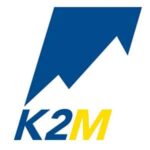Web development has transformed in recent years, enabling modern businesses to leverage innovative platforms such as web portals. A web portal can improve a business in many different ways by boosting the online presence of a company, providing adequate support for customer queries and enhancing overall customer satisfaction. Web portals are accessible on nearly any internet-enabled device, such as desktops, laptops, tablets and smartphones, to achieve maximum convenience and portability. Learn more about web portals, the different types of portals that businesses can use, and the cost of building a custom web portal with reputable web portal development services.
What Is A Web Portal?
A web portal refers to a web-based platform that gathers information from various resources and displays it in a single user interface. There are many types of portals used by businesses today, such as patient portals, student portals, vendor portals, government portals, knowledge management portals and workplace portals. What makes each of these portal types similar is that they deliver personalized access to users based on assumed or assigned user roles.
 The term “web portal” refers to any type of access-gateway that enables users to log in to a business’s back-end cloud system using a web interface. Web portals are often used to access business services or sensitive data, such as customer information. With a custom web portal, individuals can gain access to private data repositories on the cloud, giving businesses the opportunity to enhance communications, improve collaboration and streamline operations.
The term “web portal” refers to any type of access-gateway that enables users to log in to a business’s back-end cloud system using a web interface. Web portals are often used to access business services or sensitive data, such as customer information. With a custom web portal, individuals can gain access to private data repositories on the cloud, giving businesses the opportunity to enhance communications, improve collaboration and streamline operations.
Building a successful custom web portal requires the assistance of an experienced web development company. Web portals operate as innovative web applications that are built into websites to allow users to easily log in to gain access to critical data and services.
One of the most important aspects of building a web portal is security. An experienced custom web portal development team will use robust security controls and secure coding methodologies to keep portals secure and ward off cybercriminals.
Web Portals vs. Websites
Web portals are often confused with websites due to their similarities; however, these two terms have distinct differences. Websites are generally focused on attracting more users or driving traffic to specific pages to build a brand or share important information. Web portals, on the other hand, are designed for specific users and are not dependent on web traffic.
Another difference between websites and web portals relates to the actions taken on each page. A website will not request login information, such as a username and password; however, login credentials are generally required for web portals. These credentials are unique for each user.
Websites are available for public viewing and can be accessed by anyone on the internet that discovers it in search or types in the URL directly. The content on custom web portals cannot be discovered through a web search and requires the user to input his or her ID credentials to access the page.
The content found on a typical website can either be static (fixed) or dynamic. With web portals, the content is always dynamic. This means that each time a user logs in to a web portal, the content changes.
Types Of Web Portals
There are several different types of web portals that businesses can utilize to improve their business. Some of the most common types of web portals include the following:
1. Customer Portals
Customer web portals refer to secure websites that provide a business’s customers with a single point of access to sensitive information that is relevant to them, such as invoices, policies, orders, deliveries or online payments. Customer web portals are usually available around the clock for convenience and can be accessed from any web-enabled device.
Supplying customers with their own portal can have countless benefits. When customers are able to reference personalized information on their own, they are often able to resolve issues or answer questions on their own, saving businesses time and money. Customer portals can provide many solutions; they can share and exchange relevant documentation, allow customers to arrange online payments, extend customer support services, issue customer invoices or aid in order placement and delivery tracking.
With a customer web portal, customers can easily contact a business even during off-hours. Customer portals help maintain a good customer experience and improve the visibility of real-time information. These easy-to-use platforms can also eliminate costly data entry tasks and reduce internal email traffic to various source information. Customer retention is also improved with the delivery of customer web portals.

View Project
2. Employee Portals
Employee web portals, also known as intranet portals or enterprise portals, refer to a secure website in which a business can easily share information or discuss ideas within a secure environment. Employee portals are an excellent way to keep all staff members on the same page through effective knowledge-sharing capabilities.
An employee portal often makes relevant HR content readily available, including information on HR policies, benefits and pay. Many portals provide valuable content relating to employee well-being and career advice. Interface tools such as ‘search’ make it easy for employees to find the content they need quickly and efficiently.
Employee web portals are considered a self-service tool that can improve HR operations and essentially save businesses time and money. When employees have a resource for locating answers to common questions, it takes some of the burdens off HR staff. Comprehensive web portals also improve the employee experience which can have a positive effect on talent retention. When employees are satisfied in their job roles and have access to the knowledge they need, they are less likely to leave.
View Project

3. Partner Portals
In the world of business, it is not uncommon for businesses to work together to provide customers with a shared product or service. To work productively with one another, these businesses must constantly share up-to-date information, which can be difficult without the right technologies. Partner web portals make it simple to collaborate by providing both parties with a web-based secure site that can be securely accessed.
Partner portals aim to connect partners and streamline communications. Portals play a critical role in partner relationship management (PRM), a system used to link interconnected businesses. Similar to other types of web portals, partner portals are generally password protected and may take on a look and feel that reflects the business’s brand and mission.
Although partner portals may be used in a variety of ways to suit the needs of the businesses that use them, the company that creates the portal is usually the supplier. The companies that require the information from the supplier are known as the partners. A partner web portal is typically recommended to businesses that already have an existing relationship with a company. Businesses may include service providers, installers, resellers, vendors, distributors or similar groups that do business with a company.

View Project
4. Membership Portals
Membership web portals are designed for members of an organization and allow those members to easily access important information from a secure interface. These portals may include web applications, email, bulletin boards, analytics and similar tools and data. Member portals are often assigned as the home page of web browsers on most business computers.
A membership portal is similar to an internet portal but is instead designed to only be used by an organization’s members rather than the public. Similar to an internet portal, membership portals display information that can be easily read and understood. Although most membership portals are designed exclusively for internal use, access from outside users is sometimes possible through VPN connections.
There are many benefits to creating a membership portal for a business. By making the experience more personal, the portal allows for a higher degree of user satisfaction. Membership portals can also streamline communications. Instead of sending information through public sources such as the news, updates or reminders, most relevant information can be prominently displayed on an online platform where members can receive the most up-to-date information as soon as they log into the portal.
View Project

Cost Of Building A Custom Web Portal
The cost of building a custom web portal is dependent on a number of factors, such as the type of web portal, the size of the business and the content that the business requires on the platform.
Web portals must be customized to the unique needs of a business which can dramatically increase the price. The functions and elements added, as well as the experience of the development team, can also factor into the final cost of the project.
It is important to choose a web development company that not only fits the specified budget but also has the experience and skills necessary to build a secure and fully functional web portal.
Importance Of Web Portals
Web portals provide a solution to many common business problems. Standard web portals include a range of features, such as presentation, integration, federation, development, content, collaboration and search tools. These elements enable users to easily perform their required functions without direct interference from the business.
A custom web portal can provide many benefits to businesses to include saving time by consolidating certain back-end applications into a single point of access. It can be used to promote products or services to customers in a more consistent way through custom branding. Portals can even increase security by providing a safe login across all business applications.
Schedule A Free Custom Software Consultation
The use of web portals has become increasingly vital to businesses in all industries. With an experienced custom software development company, businesses can create innovative and custom web portals that help their companies thrive. For more information about the types of web portals that can improve a business, contact the experienced custom software developers at Orases by calling 301.756.5527 or by requesting a consultation online.




